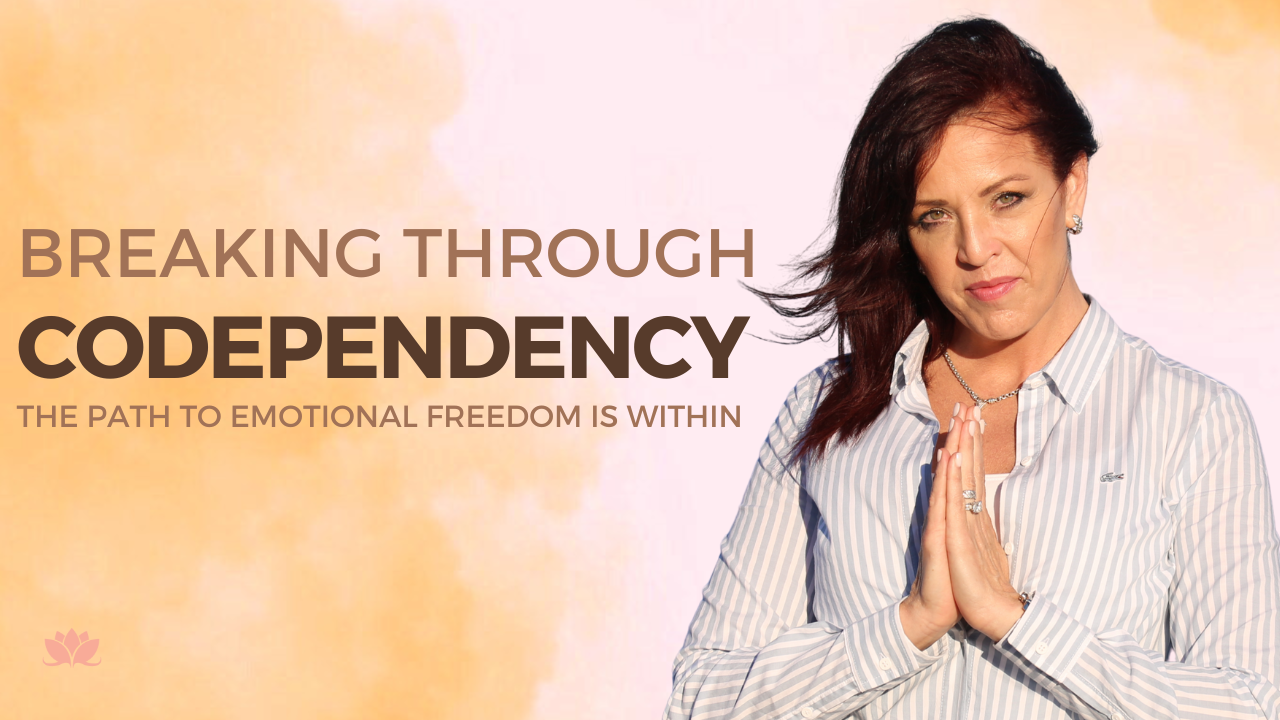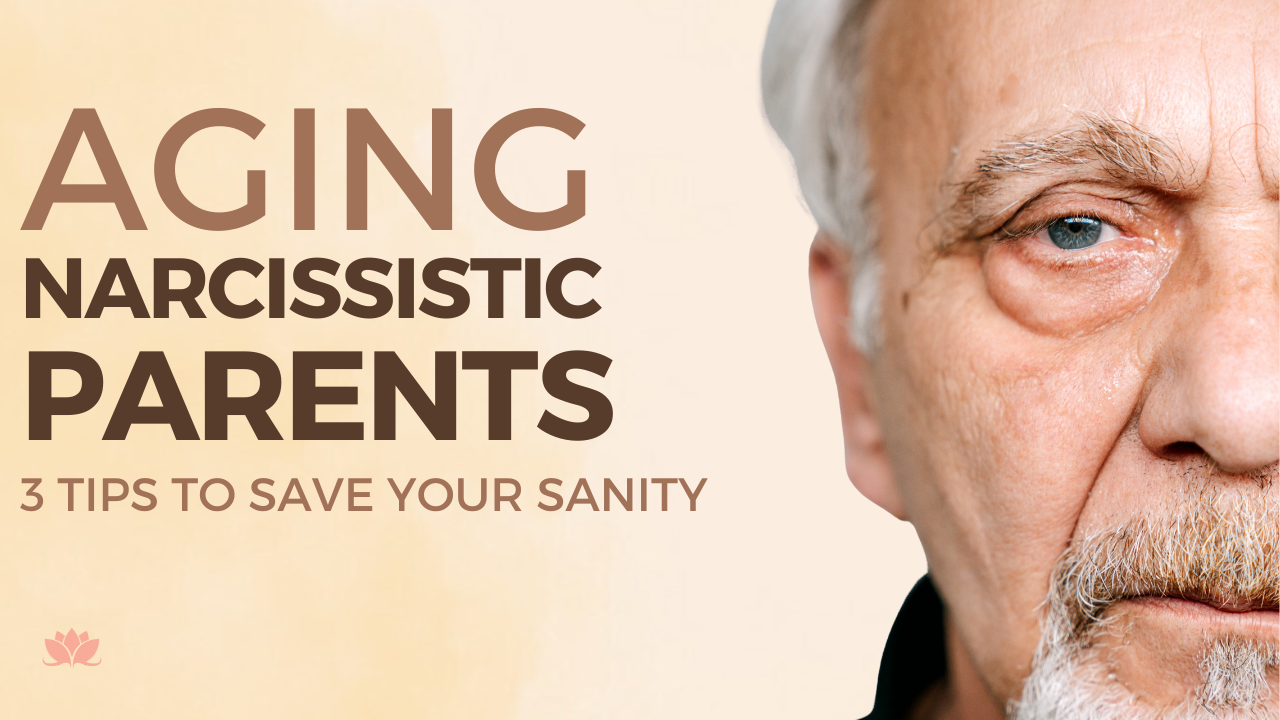#1 Sign You're Healing Childhood Trauma
Life Coach and codependency recovery expert Lisa A. Romano shares the #1 sign you're healing from childhood trauma.


Healing from childhood trauma is a journey, and like any journey, it comes with milestones that signal progress. One of the most profound signs that you’re truly healing is when you begin to notice a shift in how you respond to your emotions. Rather than reacting impulsively, driven by old wounds and unconscious patterns, you start to approach your emotions with a sense of objectivity.
This shift is significant and indicates that you’re reclaiming your power and rewriting your emotional script.
Understanding Emotional Reactivity
For many of us, childhood trauma imprints deep emotional scars. These scars often manifest as heightened sensitivity or reactivity to certain triggers. When something reminds us of a painful experience from our past, it’s as if our nervous system hijacks our present moment, catapulting us back into that old wound. Our bodies respond as if we’re reliving the trauma, and our reactions are often automatic, intense, and, at times, overwhelming.
In these moments, our emotional reactivity is not just about what’s happening in the present. It’s about the unresolved pain from our past that is still influencing our thoughts, feelings, and behaviors. This reactivity is a coping mechanism we developed to survive difficult circumstances, but as adults, it often does more harm than good. It keeps us stuck in a cycle of emotional turmoil, making it difficult to respond to life’s challenges in a balanced and healthy way.
The Shift to Emotional Objectivity
Healing begins when we create space between our emotions and reactions. This space allows us to observe our emotions without being consumed by them. It’s a subtle but powerful shift from being reactive to being reflective.
When you become more objective about your emotions, you’re no longer a prisoner of your past. Instead of instantly reacting to a trigger, you pause. You take a breath. You allow yourself to feel what you’re feeling, but don’t let those feelings dictate your actions. You start to recognize that your emotions, while valid and important, do not necessarily reflect the current reality—they reflect your past experiences, beliefs, and unresolved wounds.
This shift doesn’t happen overnight. It results from consistent self-reflection, mindfulness, and a deep commitment to your healing journey. But when it does happen, it’s a powerful sign that your trauma is no longer controlling you. You’re beginning to reclaim your emotional autonomy.
Practical Steps to Cultivate Emotional Objectivity
If you’re wondering how to foster this objectivity in your own life, here are some practical steps:
Practice Mindfulness: Mindfulness is the art of being present in the moment without judgment. Practicing mindfulness teaches you to observe your thoughts and emotions as they arise without immediately reacting to them. This practice helps create that crucial space between your emotions and actions.
Journal Regularly: Journaling is a powerful tool for self-reflection. When you write about your emotions, you allow yourself to process them in a safe and controlled environment. This practice can help you gain clarity and insight into your emotional patterns, making it easier to approach them objectively.
Challenge Negative Beliefs: Our emotional reactivity is often fueled by deeply ingrained negative beliefs about ourselves. These beliefs were formed in childhood, often as a result of trauma. By challenging these beliefs, you can begin to reframe your emotional experiences and reduce your reactivity.
Seek Support: Healing from childhood trauma is not something you have to do alone. Whether it’s through therapy, support groups, or trusted friends, having a support system can provide you with the guidance and encouragement you need to stay on track.
Practice Self-Compassion: Becoming more objective about your emotions doesn’t mean ignoring or suppressing them. It means approaching them with compassion and understanding. Be gentle with yourself as you navigate this process. Healing is a journey, and it’s okay to take it one step at a time.
The Benefits of Emotional Objectivity
When you cultivate emotional objectivity, you open the door to a host of benefits that can transform your life. Here are some of the key advantages:
Improved Relationships: When you’re less reactive, you’re able to respond to others from a place of calm and clarity. This can improve your relationships, as you’re more likely to communicate effectively and resolve conflicts in a healthy way.
Increased Self-Awareness: Emotional objectivity helps you become more aware of your internal world. This increased self-awareness can lead to greater personal growth and a deeper understanding of who you are and what you need.
Enhanced Emotional Regulation: When you’re able to observe your emotions without reacting impulsively, you’re better able to regulate them. This means you can navigate life’s ups and downs with greater ease and resilience.
Greater Inner Peace: Perhaps the most profound benefit of emotional objectivity is the sense of inner peace that comes with it. When you’re no longer at the mercy of your emotions, you can experience a deeper sense of calm and stability in your life.
Conclusion: A Sign of True Healing
Becoming more objective about your emotions is not just a sign that you’re healing—it’s a sign that you’re truly transforming. You’re breaking free from the chains of your past and stepping into a new way of being. This shift is a testament to your strength, resilience, and commitment to your own well-being.
Remember, healing is not about becoming perfect. It’s about becoming more aware, compassionate, and in tune with your true self. As you continue on this journey, know that every step you take toward emotional objectivity is a step toward greater freedom, peace, and fulfillment.
Celebrate this milestone, and keep moving forward. Your healing unfolds in beautiful and profound ways; the best is yet to come.



